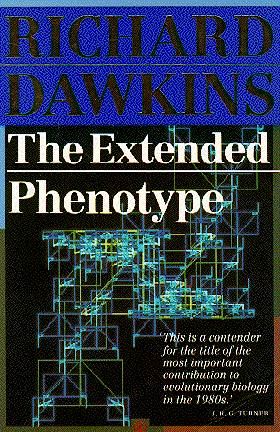The Extended Phenotype
by Richard Dawkins


Richard Dawkins has a keen mind and an engaging writing style as is well known. Science has become so large that no one can understand in detail more than a small fraction of any one field. This means that there is a virtue in being able to sift through the barrage of detail for the essential unifying truths about how things are and how they have to be. In a world of splintered specialization the expository talents of Richard Dawkins are deservedly respected. Biological evolution is an intellectual mine field where lack of rigor in making arguments can easily lead to misleading conclusions and Dawkins is not shy about pointing out his colleagues' logical blunders. His own ideas are well thought out and well presented including the Extended Phenotype concept itself.
A more comprehensive Glossary would be useful for non-biologists but for the most part even the difficult passages are comprehensible if an effort is made, and it's well worth the effort. He fears that if it is too easily understood it will not be taken seriously by professional biologists -- he is apologetic about including a Glossary at all. Perhaps if clarity were more revered within academic circles his fear would be unjustified. (Bertrand Russell's reluctant advice to academics was to write in obscure and difficult language in order to get credibility, explaining that the only reason he could get away with writing simple English was that everyone knew he could write things in the arcane language of mathematical logic if he chose.)
— Deron Stewart October 5, 1995